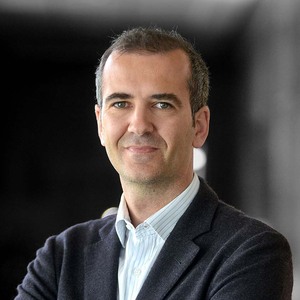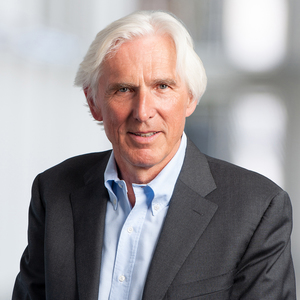What your retained executive search partner wishes you knew

1. There is a big difference between retained executive search and contingency recruitment. Executive search firms are typically retained by clients to fill critical C-suite leadership roles (CEOs, CFOs, CMOs, etc) and enlist board members. It’s a low-volume, high-value business model with a focus on finding suitable candidates who may not be actively looking to switch roles. Contingency recruitment, on the other hand, is a high-volume business model that seeks to match vacancies with an existing database of job seekers, often at an operational level. Payment is contingent on the successful placement of candidates.
2. Not all executive search firms are created equal. The barrier to entry is relatively low, and not all firms have a proven track record based on industry best practices. The Association of Executive Search and Leadership Consultants, AESC, is the closest the industry has to a governing body. Being a member of AESC means that the search firm is rigorously screened, regularly vetted, and committed to a code of conduct. Membership cannot be bought – it must be earned.
3. The professional fee structure protects us both. Unlike contingency recruitment, much of the work in executive search takes place before we even present you with a short list of candidates. The retainer fees reflect the stages of work that go into understanding and curating the role, devising a search strategy, running a research process, and assessing candidates. It allows partners to devote resources and energy to your search and removes the bias towards a quick hire.
4. It’s not only about the search consultant’s network and their understanding of your industry; it’s about the methodology. Experienced search consultants all possess extensive networks and databases. What truly matters is the executive search firm’s competence to conduct a thorough and structured search across the entire addressable candidate market. This ensures coverage of potential candidates, regardless of their LinkedIn presence or profile updates.
5. It will (nearly always) take longer than you think, so start the process sooner rather than later. This is because a large part of our value-add lies in identifying so-called passive candidates who are not actively looking for another opportunity. And, no, opening the search to other executive search firms will not speed up the process. Retained executive search firms work on an exclusive mandate for a very good reason: multiple consultants reaching out to a limited senior candidate pool creates a fastest-finger-first frenzy, which is bad for the process, bad for the candidate experience and ultimately bad for you as the client.
6. Involve all the key decision makers upfront in the process. Please don’t wait until the interview stage to introduce a decision maker, such as a board member, a line manager or a consultant, who may have a different view on the company’s direction, the role and even the candidate profile.
7. It’s a partnership. Be prepared to devote time to working alongside us to fill senior positions. Clients who are totally engaged and who review search updates, provide feedback, and make themselves available for candidate interviews get the best results. Remember, our goals are aligned. We want you to make a great hire, and we want the candidate to succeed in their new role!
8. Play open cards. If you have a legal case looming or are facing financial headwinds, level with us. It doesn’t help either of us if we woo a candidate away from a good position into a business about to be slapped with an anti-trust suit or facing foreclosure. Tell us the problems you seek to solve, and we will find you someone willing to fight alongside you to turn the situation around.
9. Your company’s employee value proposition may not be as compelling as you think it is. A prestigious brand alone may not be enough to attract the calibre of candidate you’re looking for. Our business is to understand the labour market. Allow us to guide you by being open to our feedback about why candidates are not choosing you and considering our suggestions on how to tweak that proposition.
10. Please don’t shoot the messenger. Sometimes, what you are looking for doesn’t exist or cannot be obtained for what you’re offering. We identify the candidates best suited to your requirements in the market and help you devise a structure and package that will persuade them to join your organisation. If your job spec is over-ambitious, consider our feedback and let us work with you on changing the brief to align with the labour market and your requirements.
11. Candidates are assessing you as much as you’re assessing them. It’s a potentially life-changing move, and they need to be sure it’s the right move for them. Invest the time to answer their questions and accommodate their requests for another ‘look-see’ before accepting an offer.
12. You have to come to the party when it comes time to present the company to finalist candidates. Being late, unprepared or cancelling at the last minute – sometimes more than once – sends all the wrong signals. In a seller’s market, where high-calibre candidates can afford to pick and choose, you will seldom get a second chance to make a good first impression.
13. Momentum is everything. Candidates withdraw if the process takes too long or becomes too complicated. Complex internal processes also create fatigue in the candidate market. If you need to delay the second interview for any reason, be upfront with us, or you’ll likely lose a good candidate, and we’ll have to start from scratch.
14. Candidates are stakeholders too. While it’s our responsibility to close out with candidates who did not get the job, a personal note from you thanking finalist candidates who may have invested time and effort in the process will go a long way in employer branding and keep the lines open for future conversations.
15. It’s okay to ask us for a proposal or a quote if you want to make a price comparison, but please let us know upfront that you are simply doing a price check to save us the legwork we put into our pitches. When we pitch, we do a lot of background work on your company, sector, and potential candidates before we even present our credentials.
16. And don’t ghost us if you pick someone else – just let us know! Feedback on why you didn’t pick us or why you abandoned the search is always appreciated.
With thanks to our contributors:
Verena Acerbi, Partner, AltoPartners Austria ; Sonal Agrawal, Managing Partner, Accord India and Global Chair, AltoPartners; Claudia Allwißer, Managing Partner, Jack Russell Consulting / AltoPartners Germany ; Marco Arcaini, Partner AltoSearch GmbH / AltoPartners Germany; Ricardo Bäcker, Founding Partner and Chairman of Bäcker & Partners / AltoPartners Argentina ; Javier Canals, Managing Partner, AltoPartners Morocco; Plácido Fajardo, Managing Partner Leaderland / AltoPartners Spain; Kevin Hall, Managing Partner of Bluestone Leadership Services / AltoPartners Canada and co-head of the AltoPartners Global Natural Resources Practice Group ; Dr Thomas Heyn, Partner and co-founder of Jack Russell Consulting / AltoPartners Germany; Corinne Klajda, Managing Partner of Accord Group Poland ; Nicolás Mora Schrader, Managing Director of Equation Partners / AltoPartners Chile; Mpho Nkeli, Executive Chairperson & Head: Board Practice Search Partners International (SPi) Executive Search / AltoPartners South Africa; Sorin Popa, Managing Partner of the Accord Group / AltoPartners Romania; Peter Tulau, Managing Partner at AltoPartners Australia; Pieter Ysbrandy, Partner at Leaders Trust / AltoPartners the Netherlands; Dr Julia Zdrahal-Urbanek, Founder and Managing Partner ALTO Executive Search GmbH in Austria / AltoPartners Austria

Sonal Agrawal
Managing Partner AltoPartners Bangalore, AltoPartners Delhi+NCR, AltoPartners Kolkata, AltoPartners Mumbai
Claudia Allwißer
Partner AltoPartners Munich
Marco Arcaini
Partner AltoPartners Wiesbaden
Ricardo Backer
Founding Partner & Chairman AltoPartners Buenos Aires
Javier Canals
Partner AltoPartners Casablanca
Plácido Fajardo
Managing Partner AltoPartners Madrid
Kevin Hall
Special Advisor AltoPartners Calgary
Thomas Heyn
Partner AltoPartners Munich
Corinne Klajda
CEO, President of the Board AltoPartners Warsaw
Nicolás Mora Schrader
Managing Partner AltoPartners Santiago
Mpho Nkeli
Executive Chairman & Head: Board Practice AltoPartners Johannesburg
Sorin Popa
Managing Partner AltoPartners Bucharest
Peter Tulau
Managing Partner AltoPartners Sydney

